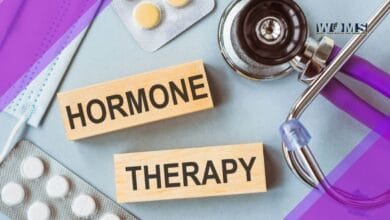Nick DeSimone: Understanding the Role of Psychology in Addiction Recovery

Addiction recovery is a layered process that goes far beyond stopping substance use. A crucial element of lasting recovery is the role of psychology, which addresses the mental, emotional, and behavioral aspects of addiction. Nick DeSimone, a mental health and addiction professional, emphasizes that understanding these psychological components is essential for individuals seeking long-term wellness. By focusing on the mind as much as the body, psychology provides the tools necessary to break the cycle of addiction and foster personal growth.
Identifying Cognitive and Emotional Triggers
One of the first steps in applying psychology to addiction recovery is recognizing cognitive and emotional triggers. Individuals struggling with addiction often face stress, anxiety, depression, or unresolved trauma, which can lead to reliance on substances as a coping mechanism.
According to Nick DeSimone, therapy allows clients to identify these triggers, understand their influence, and develop strategies to respond in healthier ways. Cognitive-behavioral therapy (CBT) is particularly effective, helping individuals recognize and replace negative thought patterns with constructive, adaptive behaviors.
Developing Coping Skills and Emotional Regulation
Many individuals turn to substances because they lack effective strategies for managing stress or regulating emotions. Psychology in addiction recovery equips clients with practical skills to handle difficult emotions and life challenges.
Nick DeSimone highlights the importance of teaching coping mechanisms such as mindfulness, relaxation techniques, and problem-solving strategies. These approaches help individuals manage cravings, reduce impulsivity, and strengthen resilience in the face of adversity.
Emotional regulation is another key benefit of integrating psychology into the recovery process. When individuals learn to recognize, process, and respond to their emotions without judgment, they reduce the risk of relapse.
Addressing Co-Occurring Mental Health Disorders
Addiction often coexists with other mental health challenges such as anxiety, depression, or trauma-related disorders. Addressing these issues is critical because untreated psychological conditions can undermine recovery efforts.
Nick DeSimone stresses the need for dual-focused treatment, in which mental health care and addiction therapy work in tandem. This approach ensures that the underlying psychological factors contributing to addiction are treated, not just the substance use itself.
Supporting Motivation and Behavioral Change
Motivation is a central aspect of addiction recovery, and psychology provides critical insight into behavior change. Nick DeSimone uses techniques such as motivational interviewing to help clients explore their reasons for substance use and strengthen their commitment to recovery.
Understanding why behaviors occur allows individuals to set realistic goals, reinforce positive habits, and maintain focus even in the face of challenges.
Building Self-Awareness and Personal Growth
Beyond addressing addiction itself, psychology in recovery promotes self-awareness and personal growth. Nick DeSimone notes that recovery is not about abstaining from substances, but it is about transforming one’s life.
Therapy encourages self-reflection, self-compassion, and the development of a positive self-identity. These aspects of psychological care allow individuals to rebuild relationships, improve decision-making, and pursue meaningful life goals.
The Mind’s Role in Lasting Recovery
Breaking free from addiction is as much a mental and emotional journey as it is a physical one. While the body must heal from the effects of substance use, the mind plays an equally critical role in sustaining long-term lifetime recovery.
Nick DeSimone believes that understanding the psychological components of addiction, such as thought patterns, emotional triggers, and behavioral responses, provides individuals with the insight and awareness needed to navigate challenges effectively.




